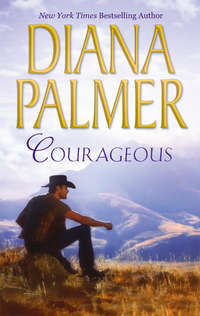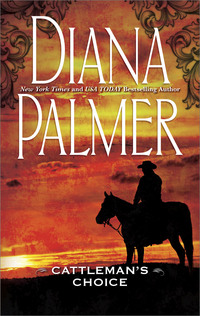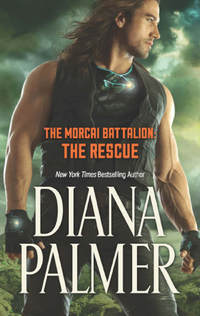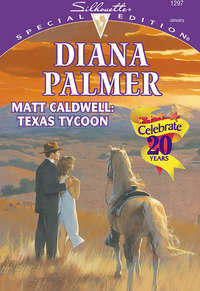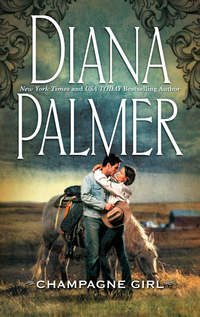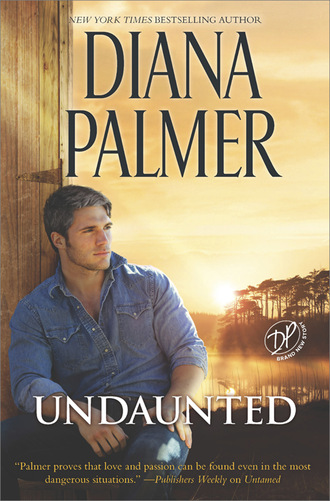
Полная версия
Undaunted

The only man she wants is the one who’ll never forgive her
Falling in love with her boss’s handsome millionaire neighbor was easy for young Emma Copeland. Despite the vast differences between them, and a past that’s left Connor Sinclair reclusive and wary, Emma gambles her heart on a desire that rocks them both. But there’s something Connor doesn’t know: Emma is responsible for an accident that changed his life forever.
Connor lives by rules intended to protect both him and his vast wealth. Emma’s innocence is the only thing that’s ever broken through his cold reserve, but now his trust is shattered. By the time he realizes how much he stands to lose, it might take a miracle to win her back. But it’s a challenge he’ll gladly face for the woman and the family he needs more than his next breath...
Undaunted
Diana Palmer

www.millsandboon.co.uk
MILLS & BOON
Before you start reading, why not sign up?
Thank you for downloading this Mills & Boon book. If you want to hear about exclusive discounts, special offers and competitions, sign up to our email newsletter today!
SIGN ME UP!
Or simply visit
signup.millsandboon.co.uk
Mills & Boon emails are completely free to receive and you can unsubscribe at any time via the link in any email we send you.
In memoriam:
Robert (Bobby) Richard Hansen, Jr. 1951–2016
He leaves behind a daughter, Amanda; a stepson, Johnny; sisters, Helen, Darla, Marlene and Lavonna; a brother, Bruce; four grandchildren; a niece, Elizabeth; and numerous other relatives. He was preceded in death by his parents and a brother, Terry Hansen. He was a Vietnam veteran. We will miss him very much.
Dear Reader,
It seems that I am dedicating more and more books to loved ones who have passed away. This one is no exception. Our nephew Bobby was a character. When James and I had been married about a year, there was a knock on the door late at night. Disturbed, we ran to answer it—usually bad news at that hour. So we open the door, and there stands Bobby with two sandwiches from Dairy Queen. He just wanted us to taste these wonderful new sandwiches he’d discovered! That was Bobby: full of fun and unpredictable.
He’d served in Vietnam. He told me some stories about his combat experiences that I’ve never shared, and never will. I was a newspaper reporter. Things we see and hear about on the job aren’t shared with civilians, as a rule, because they’re pretty horrible. Bobby saw a lot of those things. Despite his experiences there, he went on to marry our Betty and had a daughter, Amanda, and a stepson, Johnny, and several grandchildren.
We also lost our sweet nephew Tony and our brother-in-law Doug within a space of months. You never know how long you’ve got to appreciate the people you love. Never go out the door without hugging your family and telling them that you love them. You just never know.
I hope you enjoy reading Undaunted. It’s a little offbeat and mostly takes place on a Georgia lake. I truly enjoyed writing it. (I used to spend a lot of time on the lake in the book, fishing). I loved the hero, but I did want to clobber him by chapter three! The heroine is from Comanche Wells, Texas, and you might recognize Cash Grier and one of his unmarried brothers in this book, also.
I am still your biggest fan,

Contents
Cover
Back Cover Text
Title Page
Dedication
Dear Reader
Chapter One
Chapter Two
Chapter Three
Chapter Four
Chapter Five
Chapter Six
Chapter Seven
Chapter Eight
Chapter Nine
Chapter Ten
Chapter Eleven
Chapter Twelve
Chapter Thirteen
Chapter Fourteen
Chapter Fifteen
Chapter Sixteen
Chapter Seventeen
Extract
Copyright
One
Emma Copeland was sitting on the end of the dock, dangling her bare feet in the water. Minnows came up and nibbled her toes, and she laughed. Her long, platinum-blond hair fell around her shoulders like a silk curtain, windblown, beautiful. The face it framed wasn’t beautiful. But it had soft features. Her nose was straight. She had high cheekbones and a rounded chin. Her best feature was her eyes, large and brown and gentle, much like Emma herself.
She’d grown up on a small ranch in Comanche Wells, Texas, where her father ran black baldies in a beef operation. She could ride and rope and knew how to pull a calf. But here, on Lake Lanier in North Georgia, she worked as an assistant to Mamie van Dyke, a famous and very wealthy writer of women’s suspense novels. Mamie’s books were always at the top of the New York Times bestseller list. That made Emma proud, because she helped with the research as well as the proofing of those novels in their raw form, long before they were turned over to editors and copy editors.
She’d found the job online, of all places. A Facebook friend, who knew that Emma had taken business courses at her local vocational school, had mentioned that a friend of her mother’s was looking for a private assistant, someone trustworthy and loyal to help her do research and typing. It wasn’t until she’d applied and been accepted—after a thorough background check—that Emma had learned who her new boss was. Mamie was one of her favorite authors, and she was a bit starstruck when she arrived with her sparse belongings at the door of Mamie’s elaborate and luxurious two-story lake house in North Georgia.
Emma had worried that her cheap clothing and lack of social graces might put the older woman off. But Mamie had welcomed her like a lost child, taken her under her wing, and taught her how to cope with the many wealthy and famous guests who sometimes attended parties there.
One of those guests was Connor Sinclair. Connor was one of the ten wealthiest men in the country—some said, in the world. He was nearing forty, with wavy jet-black hair that showed only a scattering of silver. He was big and broad and husky with a leonine face and chiseled, perfect lips. He had a light olive complexion with high cheekbones and deep-set eyes under a jutting brow. He was handsome and elegant in the dinner jacket he wore with a spotless white shirt and black tie. The creases in his pants were as perfect as the polish on his wing-tip shoes. He had beautiful hands, big and broad, with fingers that looked as if they could crush bones. He wore a tigereye ring on his little finger. No other jewelry, save for a Rolex watch that looked more functional than elegant.
Emma, in her plain black cocktail dress, with silver stud earrings and a delicate silver necklace with a small inset turquoise, felt dowdy in the glittering company of so many rich people. She wore her pale blond hair in a thick bun atop her head. She had a perfect peaches-and-cream complexion, and lips that looked as if they wore gloss when they didn’t. Light powder and a soft glossy lipstick were her only makeup. She held a champagne flute filled with ginger ale. She didn’t drink, although at twenty-three, she could have done so legally.
She was miserable at the party, and wished she could go somewhere and hide. But Mamie was nearby and might need an iPad or her phone, which Emma carried, ready to write down something for her. So she couldn’t leave.
From across the room, the big man was glaring at her. She squirmed under his look, wondering what she could have done to incur his anger. She’d never even seen him before.
Then she remembered. She’d been out on the lake in Mamie’s speedboat once. She loved the fast boat. It made her feel free and happy. It was one of the few things that did. She’d been crazy about a boy in her class at the vocational school where she’d learned administrative skills. When he’d asked her out, all her dreams had come true. Until he’d learned that her father ran beef cattle. They were even engaged briefly.Unfortunately, he was a founding member of the local animal rights group, PETA. He’d told Emma that he found her father’s profession disgusting and that he’d never have anything to do with a woman who had any part of it. He’d walked out of her life and she’d never seen him again. After that, he ignored her pointedly at school. Her heart was broken. It was one of the few times she’d even had a date. She went to church with her father, but it was a small congregation and there were no single men in it, except for a much older widower and a divorced man who was her father’s age.
Her home life wasn’t much better. She and her father lived in a ranch house that had been in the family for three generations and looked like it. The furniture didn’t match. The dishes were old and many were cracked. Water came out of a well with an electric pump that stopped working every time there was a bad storm, and there were many storms in Texas. Her father was a rigid man, deeply religious, with a sterling character. He’d raised his daughter to be the same way. Her mother had died in childbirth when she was eight years old, and she’d seen it happen. Her father had drawn into himself at a time when she needed him most. That was before he’d started drinking. He’d rarely been sober in recent years, leaving most of the work and decision making on the ranch to his foreman.
He’d never seemed to feel much for his only child. Of course, she wasn’t a boy, and it was a son he’d desperately wanted, someone to inherit the ranch after him, to keep it in the family. Girls, he often said, were useless.
She dragged herself back from her memories to find the big man walking toward her. Something inside her wanted to run. But her ancestors had fought off floods and cattle rustlers and raiding war parties. She wasn’t the type to run.
She bit her lower lip when Connor Sinclair stopped just in front of her. He wasn’t sipping champagne. Unless she missed her guess, he held a large glass of whiskey, straight up, with just a cube of ice in the crystal glass.
He glared down at her from pale, glittery silver eyes. “I had a talk with the lake police about you,” he said in a curt, blunt tone. “I told them who you worked for and where you lived. Pull another stunt like yesterday’s on the lake, and you’ll find out what happens to kids who take insane risks in speedboats. I’ve had a talk with Mamie, as well.”
She drew in a shaky breath. “I didn’t see the Jet Ski!”
“You weren’t looking when you turned,” he bit off. “You were going too fast to see it at all!”
She was almost drawing blood with her teeth. Her hand, holding the flute, was shaking. She put her other hand over it to steady it. “There was nobody out there when I started...”
“Your generation is a joke,” he said coldly. “Unruly kids who have no manners, who think the world owes them everything, that they can do whatever the hell they please, do whatever they like, without consequences! You go through life causing tragedies and you don’t care!”
She felt tears stinging her eyes. “Ex-excuse me,” she said huskily, turning away.
But he took her firmly by one shoulder and turned her back around. “I never make threats,” he said coldly. “You remember what I’ve told you.”
Tears overflowed her eyes. She couldn’t help it. And it shamed her, showing weakness before the enemy. She jerked away from him, white-faced and shaking.
He frowned, as if he hadn’t expected her reaction. She turned and ran for the kitchen. She put the flute down on a counter and went out the back door into the cool night air, desperate to get away from him. Nobody knew where she was. Nobody cared. The tears tumbled down over her cold cheeks. She’d grown up without love, without the simplest display of affection after their housekeeper Dolores left the ranch, except for an occasional hug from the women in her church. She’d lived alone, had her dreams of romance shattered. And now here she was, her pride in shambles, hounded out of her home by a relentless enemy who seemed to think she was a juvenile delinquent bent on killing people. All that, because she went a little wild in the speedboat.
By the time she got herself together and eased back in, Connor Sinclair was nowhere to be seen. She went back to Mamie’s side and stayed there the rest of the night, hoping against hope that he wouldn’t return.
* * *
It had been a sobering confrontation. She hoped she never had to see Connor again. Sitting on the dock, she moved her toes in the cool water, laughing softly at the tiny fish still nibbling on them. The lake was glorious in autumn. Leaves were just beginning to turn, in every single shade of red and gold the mind could imagine. There was a soft breeze, lazy and warm, because autumn had come late to North Georgia. Emma, in her long cotton dress, with its brown and yellow and green print, looked like part of the scenery in a postcard.
“What the hell are you doing on my dock?” a cold, angry voice growled from behind her.
She jumped up, startled, and grabbed her shoes, too unsettled to think of putting them on. “Your dock?” She’d thought the house was closed up. She hadn’t seen any lights on in it for days and she’d never considered who might own it. The dock had always been deserted. She’d been coming here for several days to enjoy the minnows and the view of the lake.
“Yes, my dock,” he said angrily. His hands were shoved deep in the pockets of his tan pants. He wore a brown designer polo shirt, which emphasized the muscles in his chest and arms.
“I—I’m sorry,” she stammered, her face turning bright red. “I didn’t think anybody lived here...”
“Funny girl,” he shot back. “Mamie knows that I’m here three months of the year. You knew.”
“I didn’t,” she bit off, feeling tears threaten all over again. She moved away from him. “Sorry,” she added. “I’m sorry. I didn’t know...”
“I come here to get away from people, reporters, telephones that never stop ringing. I don’t want my privacy invaded by cheap little girls in cheap dresses,” he added insolently, sneering at her off-the-rack dress.
Her lower lip trembled. Tears threatened. But her injured pride wouldn’t let that insult go by unaddressed. “My dress may be cheap, Mr. Sinclair, but I am not.” She lifted her chin. “I go to church every Sunday!”
Something flashed in the eyes she could barely see. “Church!” he scoffed. “Religion is the big lie. Sin all week, then go to confession. Sit in a pew on Sunday and hop from one bed to another the rest of the week.”
She just stared at him. “From what I hear, bed-hopping is your choice of hobbies. It is not mine.”
He laughed shortly. “Women will do anything for a price.”
As if in answer to that cynical remark, a beautiful brunette in a fashionable dress stuck her head out the door of his lake house. “Connor, do hurry,” she fussed. “The soufflé is getting cold!”
“Coming.” He gave Emma’s dress a speaking look. “Did you get that from a thrift shop?” he asked insolently.
“Actually, I bought it off a sale rack. And for a very good price.”
“It looks cheap.”
“It is cheap.”
“Stay off my dock,” he said coldly.
“Don’t worry, I’ll never walk this way again,” she murmured as she turned to leave.
“If you take that speedboat on the lake again, you pay attention to where you’re driving it. The lake police will be watching.”
She didn’t turn around. Her stiff little back told its own story.
“Impudent upstart,” he muttered.
“Overbearing pig.”
She thought she heard amused laughter behind her, but she didn’t turn around. She kept on walking.
* * *
Mamie looked up as Emma walked into the living room. The house was two stories high, overlooking the lake. It had a grace and beauty much like Mamie herself. It seemed to blend effortlessly into its surroundings. She was smiling, but the smile faded when she saw the younger woman’s face. It was flushed, and traces of tears marred her lovely complexion.
“What’s wrong, sugar?” she asked gently.
Emma drew in a breath. “I didn’t know Connor Sinclair owned the house down the shore,” she said. “I’ve been sitting on the dock, dangling my feet off the edge. He caught me at it and ordered me off the property.”
Mamie grimaced. “I’m sorry, I should have told you. He spoke to you at the party, about the boat, didn’t he?”
“Yes, if you can call threats and intimidation a conversation,” she replied with a wan smile. “I wasn’t being reckless at all. I just didn’t see the Jet Ski. It came out of nowhere.”
“You have to anticipate that people on Jet Skis do crazy things. So do other motorboat drivers. We had a tragedy here on the lake a few years back. A speeding motorboat hit a houseboat and killed two people.”
“How horrible!”
“The driver had been drinking. He was arrested and charged, but the passengers on the boat were still dead.”
“I’ll be more careful,” Emma promised. She grimaced. “I don’t understand why he dislikes me so much,” she murmured absently. “He was horrible to me at the party. And he looks at me as if he hates me,” she added.
Mamie had a feeling about that, but she wasn’t going to say what it was. She only smiled. “I’ll have a dock built on the lake, just for you, sweetheart, so you can dangle your little feet.” Mamie’s was one of the few homes on the lake that didn’t boast a private dock. Emma had to drive Mamie’s car over to the marina to use the boat. Or walk, if Mamie was away, as she often was, since Mamie was eccentric and only kept one luxury car at her lake house. It wasn’t that much of a walk for someone as young and athletic as Emma was.
Emma laughed. “You don’t have to go to that trouble. I’ll walk over to the marina and dangle my feet off the docks there. It isn’t as if I can do it much longer, anyway. It’s October already.”
“With your luck, the dock you choose at the marina will be the one where Connor keeps his sailboat.” Mamie chuckled. “Docks don’t cost that much—they’re mostly empty drums with planking on top. I’ll have someone see about it next week.” She waved Emma’s protests away, then said, “Come on in here, will you, honey? I want to dictate some chaotic thoughts and see if you can inspire me to put them into an understandable form.”
“I’ll be happy to,” Emma replied.
* * *
“Who was the girl on the dock?” Ariel asked as she and Connor shared the overcooked soufflé she’d taken out of the oven.
“One of the new generation,” he said coldly. “And that’s all I want to say about her.”
She sighed. “Whatever you say, darling. Are we going out tonight?”
“Where do you want to go?” he asked, giving up his hope of a quiet night with a good book and a whiskey sour.
“The Crystal Bear,” she said at once, naming a new and trendy place on the outskirts of Atlanta, near Duluth, where the main attraction was a huge bear carved from crystal and a house band that was the talk of the town. The food wasn’t bad, either. Not that he cared much for any of it. But he’d humor Ariel. She was beginning to get on his nerves. He gave her slender body a brief appraisal and found himself uninterested. He’d felt that way for several days. Ever since that little blonde pirate had almost run into him on the Jet Ski and he’d given her hell for it at Mamie’s party.
The girl was unusual. Beautiful in a way that had little to do with her looks. He’d seen her, from the porch of his lake house, usually when she didn’t see him. There had been a little girl who’d wandered up on the beach. The blonde woman—what was the name Mamie had called her? He couldn’t remember—had seen her, bent to comfort her, taken the child up in her arms and cuddled her close, drying her tears. He’d seen her walking back down the beach, apparently in search of the missing parent.
The sight had disturbed him. He didn’t want children, ever. Countless women had tried to convince him, practically trick him into it, for a decade, but he was always careful. He used condoms, despite assurances that they were on the pill. He was always wary because he was filthy rich. Women were out to ensnare him. A child would be a responsibility that he didn’t want, plus it also meant expensive support for the child’s mother. He wasn’t walking into that trap. He’d seen what had happened to his only brother, who lived in misery because of a greedy woman who’d gotten pregnant for no other reason than to trap him into a loveless marriage. That marriage, his brother’s, had ended in death, on this very lake. It chilled him to remember the circumstances. The blonde woman brought it all back.
Still, the sight of the blonde woman with the child close in her arms, her long, shiny hair wafting in the breeze, made him hungry for things he didn’t understand. She had no money, and wasn’t even that pretty. It puzzled him that he should have such an immediate response to her. That night, at the party, he’d stared at her, hungered for her, wanted her.
He’d made her cry, frightened her with his reckless anger. He hadn’t meant to. She didn’t seem like other women he knew who pretended tears to get things. Her tears had been genuine, like her fear of him. He’d been shocked when she backed away from him. It had been a long time—years—since anyone had done that. And never a woman.
Then he’d found her sitting on his dock, laughing as she dangled her feet in the water. The sight had hit him in the heart so hard that it had ignited his temper all over again. He had no need of this blonde woman. He had Ariel, bright and beautiful, who would do anything he asked, because he showered her with the expensive diamonds she loved.
The blonde in the cheap dress had been wearing even cheaper jewelry. Her shoes had been scuffed and old. But she had a regal pride. It amused him to recall her cold defense of her morals. Which were of no concern to himself, he thought, and promptly shut her out of his mind.
* * *
Mamie called Emma to her office a few mornings later as she was sealing the last of several envelopes that contained the neat little notes Emma had typed and printed for her. Mamie had just finished signing them.
“I would have done that for you,” Emma protested.
“Of course you would, but I had some time.” She put the envelopes in a neat stack. “You can stamp them and put the address labels on. Here’s the thing, sweetie, I’m going to be away for about two or three months. A sheikh has invited me to stay at his palace and see the sights in Qawi with his family. We’ll watch horse races, attend cultural events all over the Middle East, even spend some time on the Riviera in Monaco and Nice on the way home. Do you want to stay here or go home to your dad?”
Emma swallowed. “Well...”
“You’re welcome to stay here,” she said gently, because she knew how Emma’s father treated her. Emma had often lived with another family in Texas, but she’d said that she didn’t want to impose on them. “I know how much you hate to travel. It’s why I’ve never taken you overseas. But you’d be doing me a favor actually, because I wouldn’t have to close up the lake house. What do you think?”


